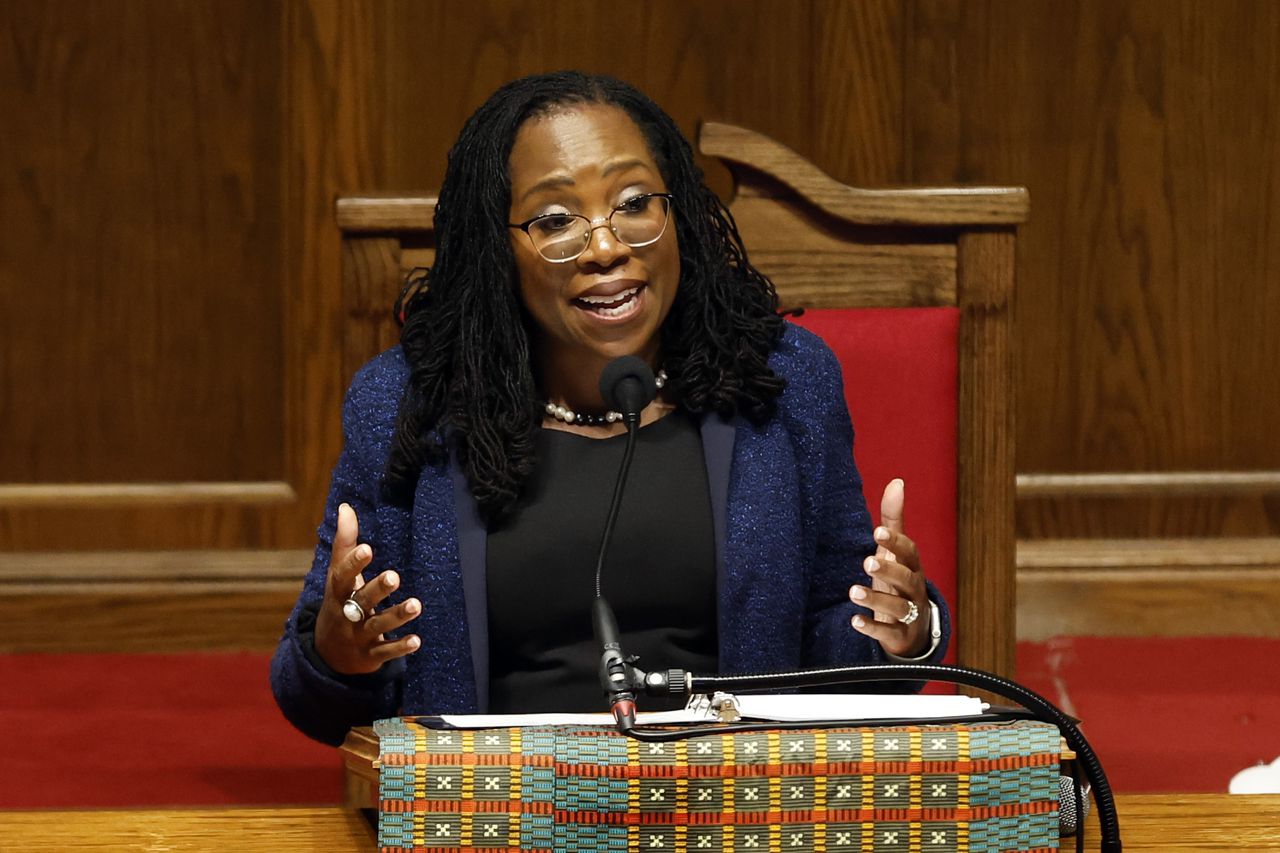âI felt in my spirit I had to comeâ: Justice Ketanji Brown Jackson speaks at 16th Street
U.S. Supreme Court Justice Ketanji Brown Jackson, the first Black woman on the nation’s highest court, spoke Friday at the 60th anniversary memorial service at the site of a 1963 bombing that killed four girls and became a turning point for the civil rights movement.
Born on Sept. 14, 1970, Jackson, 53, noted that she came of age after the civil right movement have moved obstacles to allow her to pursue a career in law and ultimately take a seat last year as an associate justice on the nation’s highest court. Raised in Florida by parents who were schoolteachers, she was educated by them about the civil rights history of Alabama.
This week marked her first trip to the state. “I felt in my spirit I had to come,” she said.
She spoke after the tolling of bells at 10:22 a.m., to remember the moment a bomb blast on Sept. 15, 1963, killed Addie Mae Collins, 14, Denise McNair, 11, Carole Rosamond Robertson, 14, and Cynthia Wesley, 14.
“I knew those girls were killed simply because they were Black,” Jackson said.
Their deaths helped change society so that she could take her place in it. It came at the cost of lives they could have lived. “Unlike those four little girls, I have lived,” she said.
Jackson said she has two daughters who she will always consider her little girls. “I can imagine no greater horror than to lose a child this way,” she said.
She said her mother, aunt and uncle are all proud graduates of Tuskegee University.
“I want to assure you that I actually do know a lot about Alabama and in particular its critical connection to the civil rights struggle of African-Americans during the 1950s and 1960s,” she said. “While I’ve not been to Alabama, I can quite confidently say that I know Alabama. If you knew my parents, you would understand why.”
Jackson said knowledge and truth are the keys to continuing progress in social justice.
“If we are going to continue to move forward as a nation, we cannot allow concerns about discomfort to displace knowledge, truth or history,” Jackson said. “It is certainly the case that parts of this country’s story can be hard to think about.”
16th Street Baptist was filled to capacity, more than 1,000 people, for the memorial service. Filmmaker Spike Lee, who directed the 1997 documentary, “4 Little Girls,” was seated on the front row with family members of bombing victims, U.S. Rep. Terri Sewell and Birmingham Mayor Randall Woodfin.
“We have to own even the darkest parts of our past, understand them and vow never to repeat them,” Jackson told the crowd.
Because the church was standing-room only, hundreds of people who had waited outside a security checkpoint in front of the church had to listen to Jackson’s speech broadcast to the overflow crowd that moved to Kelly Ingram Park for the broadcast.
